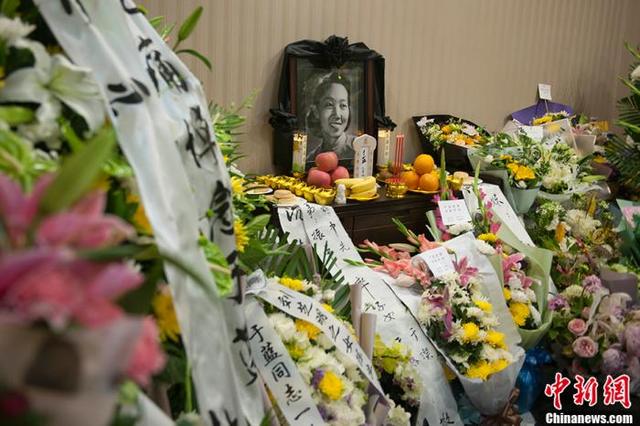
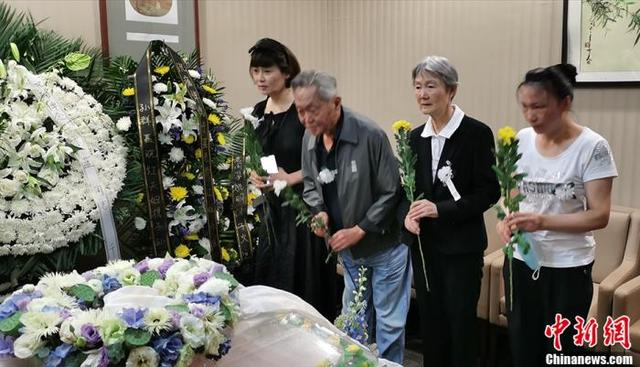
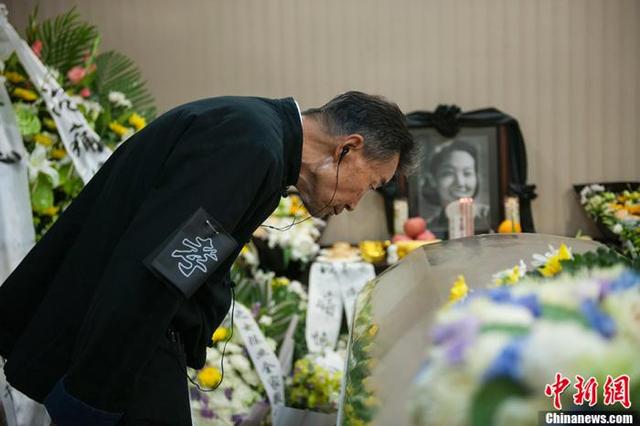





Zhongxin. com, November 11 (Zhang Aijing) November 11 is the centenary of the end of the First World War. One hundred years ago today, representatives of the German government and the Allies signed an armistice agreement in Compiè ne, France, thus ending the First World War.
This unprecedented war has brought profound disasters to mankind and profoundly affected the historical development of Europe and even the world. On the centenary of the end of World War I, looking back at history and commemorating the "armistice" is not only to mourn Qian Qian’s life lost in the war, but also to impress the present and future generations that war is cruel and peace is priceless.
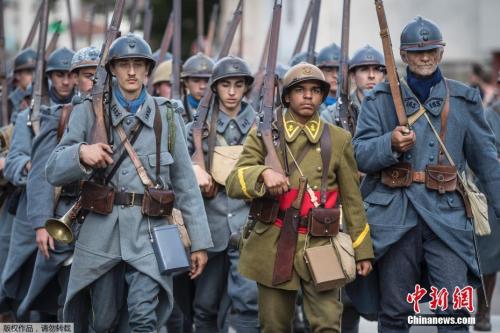
On August 25, 2018, hundreds of volunteers from 18 countries gathered in Verdun, France, put on the uniforms of soldiers in World War I and re-enacted the scene of the Battle of Verdun as one of a series of activities to commemorate the centenary of the end of World War I.
A brief history of the First World War
At the end of 19th century and the beginning of 1920s, western imperialist countries launched fierce struggles around the struggle for world hegemony and colonies, and the contradictions among European powers were complicated.
Before World War I, major European countries formed two potentially hostile alliances, Germany and Austria-Hungary on one side, France, Britain and Russia on the other. On June 28th, 1914, Archduke Ferdinand of Austro-Hungarian Empire was assassinated in Sarajevo, which triggered a series of reactions and eventually ignited a full-scale war between the two alliances — — The first world war.
After the war, the allies (Germany, Austria-Hungary, etc.) and the allies (France, Britain, Russia, etc.) fought on the European battlefield. But soon, the war went beyond the scope of Europe and involved the whole world in the whirlpool of war.
World War I lasted more than four years, and finally ended in the defeat of the Allies. During the war, wars spread all over Europe, Asia and Africa, more than 30 countries and regions with a population of about 1.5 billion were involved in the war, 65 million people participated in the war, and the number of casualties exceeded 30 million, resulting in economic losses of about 170 billion US dollars.

On November 2, 2018, in Maize, Belgium, the local botanical garden used thousands of poppies made of red bottle caps to pose as pigeons.
Change the historical trajectory of the world
World War I brought great disasters to mankind and had a profound impact on world history.
After the war, the balance of power among imperialist countries changed. Germany was defeated and ceded land for compensation; The Austro-Hungarian Empire completely collapsed; Although Britain and France won, they were weakened and weakened in the war. The United States made huge profits in the war and became an economic power.
On the other hand, through the Paris Peace Conference and the Washington Conference, the imperialist powers established the "Versailles-Washington System" and established the ruling order in Europe, West Asia, Africa, East Asia and the Pacific.
However, this new system used to carve up the world did not eliminate the fundamental contradiction between imperialist countries, but was broken with the rise of fascism in Germany, Italy and Japan. Only 20 years after the end of World War I, World War II broke out.

On November 6, 2018, in London, England, thousands of torches were lit around the Tower of London to welcome the centenary of the armistice in the First World War and to commemorate the fallen soldiers.
Many countries commemorate the centenary of armistice.
From 1918 to 2018, it has been a hundred years since the end of World War I. A century of history has given this year’s Armistice Day more commemorative significance.
Recently, with the approach of November 11th, many countries have held different forms of commemorative activities. In Maize, Belgium, the local botanical garden made "poppies" with thousands of red bottle caps and used them to pose as doves of peace. In London, England, thousands of torches were lit around the famous Tower of London to commemorate the fallen soldiers.
In France, French President Macron and British Prime Minister Theresa May visited Albert, a town in northern France, on the 9th to mourn the officers and men killed in the Battle of the Somme in World War I.. On the 10th, Macron and German Chancellor Angela Merkel visited the Compiè ne Forest, north of Paris, and visited the train carriages that signed the armistice agreement a hundred years ago.
The official week-long commemoration in France will reach its climax on the 11th. Leaders of about 70 countries, including the United States, Russia, Germany and Britain, will gather in Paris to attend the centenary of the end of World War I and the peace forum.

Reflection on war and peace are priceless.
World War I has become history, but the discussion on World War I has not ended. On the centenary of the end of World War I, the French ambassador to Japan and the German ambassador to Japan also published articles together, reflecting on the history of the war and reviewing the post-war reconciliation process between France and Germany.
According to the article, the First World War spread to most parts of the world, and many continents ignited wars. For Europeans who lost their loved ones, this war is a terrible tragedy. The long war devoured the population and economic strength of Europe. However, the end of World War I did not bring about permanent peace. Twenty years later, a more tragic war broke out again, which claimed more lives.
"France and Germany understand the suffering and cost of war. In order not to repeat past mistakes, the two countries are committed to developing close and friendly relations." Ambassador France and Germany said in the article.
Remembering the painful lessons of history is for mankind to enjoy a peaceful and beautiful future. In today’s world, there are still countless people suffering from war. The international community should draw profound lessons from history, cherish and safeguard the hard-won peace situation, persist in resolving international disputes through dialogue and consultation, strengthen and improve global governance, and safeguard lasting world peace.
A hundred years after the end of World War I, people put poppies on their chests to mourn the soldiers killed in World War I and remember those who died in the war. And this "little red flower" that has passed through a hundred years is constantly reminding people that war is cruel and peace is priceless!
From Vietnam to North Korea
From Afghanistan to Syria
The United States often hits
"Humanitarian intervention"
"Combating terrorism"
Wait for the banner to use force against foreign countries
For more than two centuries
War and force
The DNA that has been integrated into this country
Historically speaking,
The United States is the most combative country in the world.
Since the declaration of independence in 1776, in the history of more than 240 years, the United States has launched and participated in more than 200 wars, and has not participated in wars for less than 20 years.
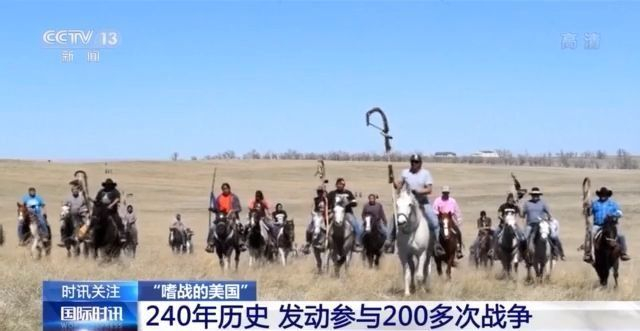
For hundreds of years, in order to plunder land and resources, the United States has violently expelled and killed aborigines. From the end of the 15th century to the beginning of the 20th century, the population of Native Americans dropped sharply from 5 million to 250,000. The history of American development is the history of aboriginal blood and tears.

More than 170 years ago, the United States forced Mexico to sign an unequal treaty through the US-Mexico War and other means, and plundered large areas of territory that originally belonged to Mexico, including Texas, California and Arizona.

After the end of World War II, the United States intervened in or launched many wars overseas, which claimed a lot of lives, especially caused extremely serious civilian casualties and brought eye-catching humanitarian disasters. According to incomplete statistics, from the end of World War II in 1945 to 2001, there were 248 armed conflicts in 153 regions of the world, of which 201 were initiated by the United States, accounting for about 81%. From the Korean War to the Vietnam War, millions of civilians were killed in the war. However, the United States used "Agent Orange" on a large scale in the Vietnam War, and used depleted uranium bombs on a large scale in the Gulf War and the bombing of Yugoslavia in 1999, causing local people to suffer from cancer or other diseases.
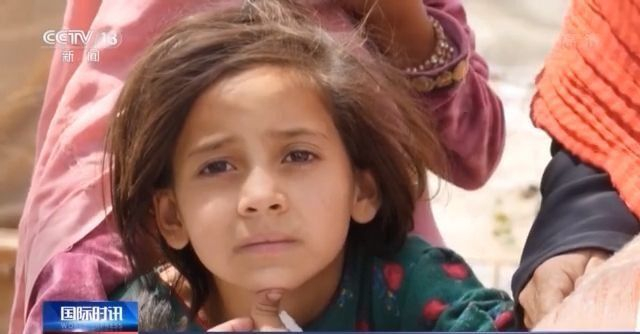
After 2001, under the banner of "anti-terrorism", the United States continued to fight militarily and launched wars and military operations in 85 countries around the world. The war claimed more than 900,000 lives, including 387,000 civilians. Tens of millions of refugees have been displaced in Afghanistan, Iraq, Libya, Syria and other places most devastated by war.
The reasons why the United States launched these wars are high-sounding, often under the banner of so-called humanitarian intervention and combating terrorism. But in fact, what are the reasons behind the frequent use of force by the United States?
Plunder oil under the guise of human rights and democracy
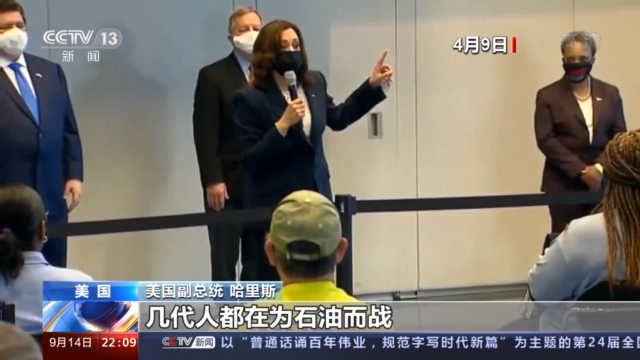
US Vice President Harris:You know, in the past many years, generations have been fighting for oil.
Harris let slip that the so-called human rights and democracy are just a cover for waging war, and the real purpose is to rob oil and control other countries by controlling global oil resources. Syria, Iraq, Libya and other countries are victims of American oil ambitions.
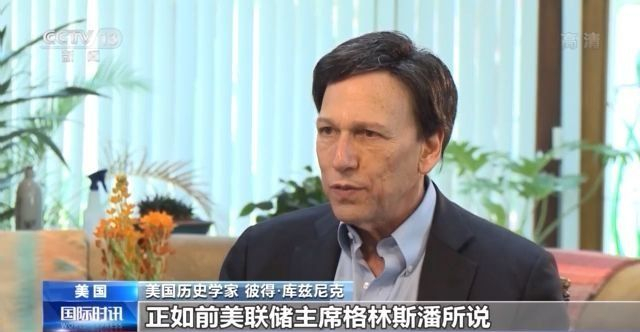
American historian Peter Kuznik:As former Federal Reserve Chairman Alan Greenspan said, unfortunately, Americans are unwilling to admit that we invaded Iraq for oil.
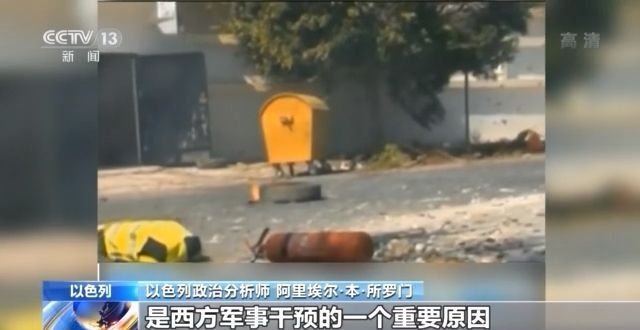
Israeli political analyst Ariel Ben Solomon:The fact is that Libya has relatively large oil reserves, which is an important reason for western military intervention.
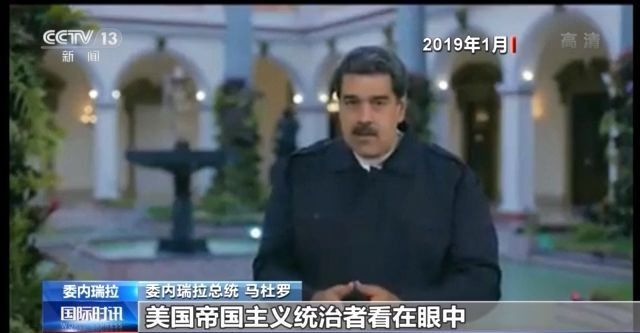
Venezuelan President Maduro:Our country has the richest oil reserves in the world, and American imperialist rulers are looking at it and trying to get their hands on our oil, just as they did in Iraq and Libya.

Syrian President Bashar al-Assad:The United States harms the interests of other people, undermines international law, destroys the foundation of humanity, and so on, all for the sake of oil.
The military-industrial complex issued a "war windfall"

American military enterprises are closely related to the US government and Congress, forming a powerful military industry interest group. According to the survey report released by the Institute of Security Policy Reform, an independent think tank in the United States, from October 2001 to August 2021,Lockheed — Martin, Raytheon, General Dynamics, Boeing and northrop — Grumman Corp.The five American military giants received a total of $2.02 trillion from Congress. These arms dealers have also spent huge sums of money lobbying Washington politicians. As a result, not only have the US military spending been rising year after year, but they have also taken advantage of the intensification of various foreign policies and regional situations to promote arms around the world.
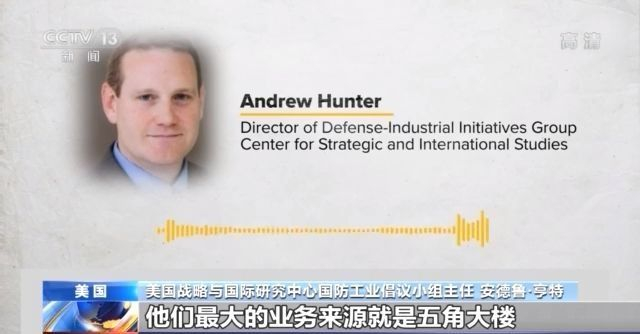
Andrew Hunter, Director of the Defense Industry Initiative Group of the Center for Strategic and International Studies in the United States:For most defense industries, their biggest source of business is the Pentagon, so their fate follows the defense budget.
Control other countries and safeguard global hegemony
These interests, such as oil and arms, are only superficial reasons. What the United States has shown behind its years of belligerence is actually a hegemonic mentality of "giving priority to the United States and taking all the strong" and a unilateral thinking of "being the only one who cares about the world". Kurt Ritter, a former US Marine Corps intelligence officer, published an article on the website of Russian TV today on the 11th, saying, "The United States is trying to reshape the world according to its own ideas. The United States feels that it is the most important country, and other countries should act in the direction guided by the United States, otherwise it will be the enemy of the United States. "
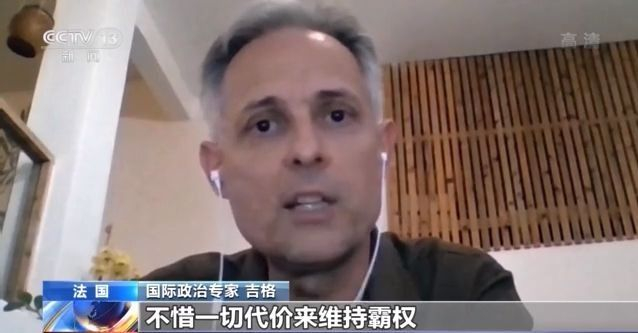
International political expert Giger:Since 1945, the foreign policy of the United States has always been to maintain hegemony at all costs in areas they consider strategic.

Iranian political analyst Huszcza Shm:This is the embodiment of (American) hegemony. The United States doesn’t care about other countries at all, and it doesn’t care about the United Nations. It thinks it is superior to other countries, so it dares to bully, invade and plunder the people of other countries. The attitude and behavior of the United States in the past 20 years can explain the fact that the United States simply doesn’t care about the values it preaches, such as democracy, the rule of law, and counter-terrorism. The United States only uses these as tools.
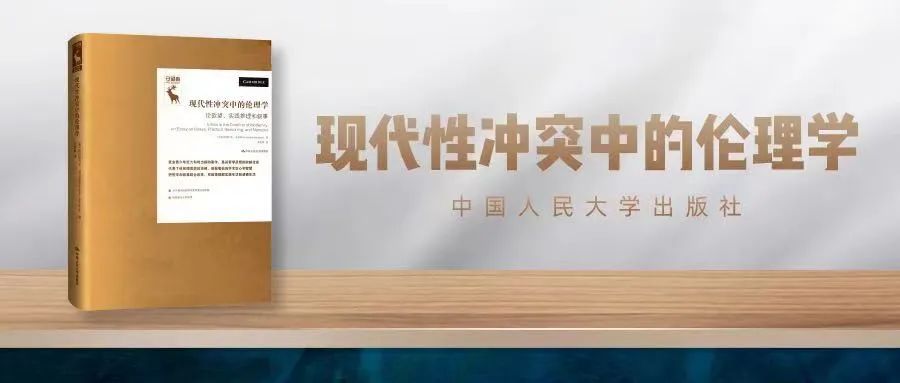
Ethics in the Conflict of Modernity is a book published by the famous ethicist Mai gentile in the late nineties, which is an authoritative exposition of his philosophical thoughts. In this book, Mai gentile thinks that although the modern welfare state has made up for the disadvantages of capitalism to some extent and improved the living standards of most people, it has not fundamentally eliminated the greater disadvantages of capitalism, which often makes people tired and go astray in satisfying their desires, making it difficult to fully balance their interests and maintain a real cooperative life. Mai gentile hopes that people can think and study these problems, understand their social life, know how to negotiate and make correct moral choices, and become practical rationalists.
In this night when countless people revel in consumption, we hope that more people can understand the call of Mai gentile, examine their own desires and pursue a truly happy life.
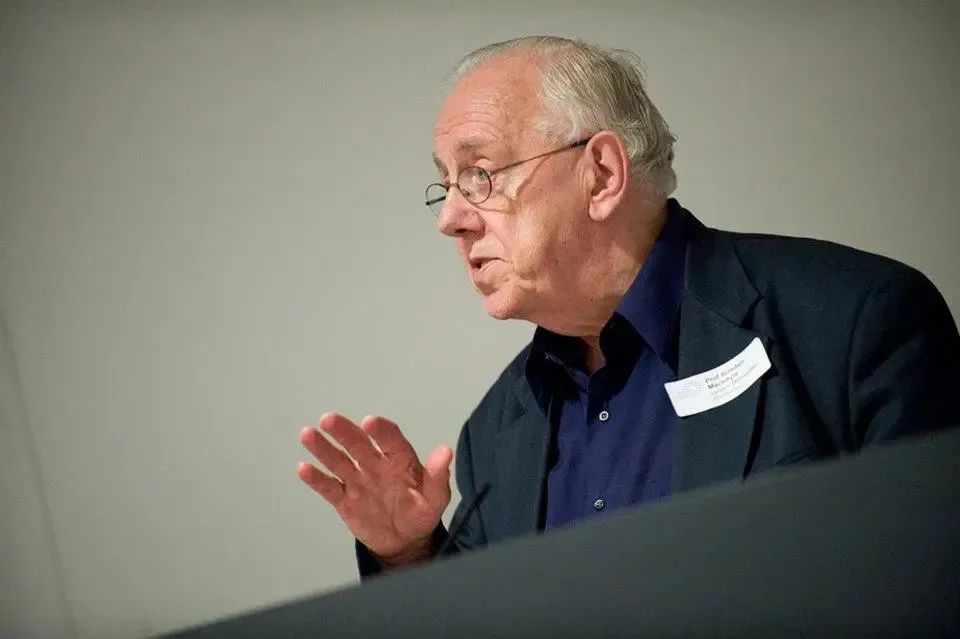
▲
Mai gentile
Mai gentile: Modernity Suitable for Modern Moral Existence
What is the subject’s desire? How are these desires felt and expressed? How are they related to the subject’s practical reasoning? These problems have changed within the social and cultural order and between different social and cultural orders. Biological needs can be constant, but the objects to satisfy desires will be very different. In Edo in the 19th century, people ate sashimi to satisfy their appetite. In Bologna in the 19th century, people’s appetite was satisfied with salsa sauce. Today, Londoners, who have gained the advantages of many families, also appreciate these two delicacies. But no matter in the past or now, the way people learn to eat at the beginning of their growth will change greatly later. Other needs and demands will also undergo the same transformation. In different social and cultural order, people’s ways to meet their needs and demands run through all kinds of life, with different family and professional roles and corresponding goals, aspirations and hopes. As we mentioned earlier, our desires are always closely linked with our emotions, habits and beliefs, which show different forms in different lifestyles. If we want to understand what is the legitimate reason of desire, we must explore the various functions of desire in those lifestyles, which have the characteristics of the social order and cultural order in which we live, and this is the social order and cultural order of modernity. In this quest, we can mainly consider some obvious problems. Opportunities and hopes, security and poverty, regrets and lamentations, aspirations and other issues all show unique modern forms.These problems come from the continuous transformation of work and are the result of the development of economic modernity since the 18th century.
We start with the question of opportunity and hope. The social and cultural order of modernity, no matter what its form, is the result of long-term economic growth and technological innovation. This long-term nature seems to be indefinite, while the growth is sometimes slow, sometimes fast, sometimes continuous, sometimes disrupted, sometimes deliberately shaped, but in more cases it is unplanned. This growth often provides new types of jobs, sometimes provides people with new opportunities to become managers and professionals, and sometimes brings rich returns to those who can dominate others’ work and occupy their surplus labor value, which often makes workers tolerate the slow growth of wages. As a result, a new system has emerged and the old system has been transformed, and perhaps the most obvious result is that schools have become places to train children and teenagers into labor. In these changes, new types of inequality, new forms of class differentiation, new contradictions and struggles, and new goals of desire and ambition have emerged. We only consider three examples of different types of desire subjects. First, workers in the 19th and 20th centuries were generally employed in mills and factories. These workers are realistic. They mainly want to improve their lives and those of their families. They never want to leave the working class. Secondly, the contemporaries who pursued social and economic success (regardless of social background) had skills, imagination and luck, and wanted to go up through the class system to achieve the success recognized locally at that time. Finally, there are contemporary people with money aspirations. They started from some resources and pursued unlimited wealth. The past and present are not satisfied with this statement.
The first kind of stories are about working-class individuals and families, both of which are the political backbone of the trade union movement throughout its history. Such stories often illustrate the necessity of taking collective action. The second kind of stories provide material for novelists and some sociologists, from which we can study the career structure of the bourgeoisie and see the changes of people at all levels of management, such as engineers or lawyers or newcomers in accounting becoming big coffee in this industry. The third kind of stories are sometimes fables of the rich, but they often record cases of habit addiction, which is an addiction to money. These stories all tell the experiences of some individuals, families and groups. Their life motivation comes not only from ambition and hope, but also from fear of frustration and failure, fear of long-term unemployment and poverty, fear of being unable to get rid of the painful work pressure and fear of debt burden.
With these hopes and fears in the macro sense, individuals have formed the forms of love and hate, harmony and hostility, which make their specific desires, tastes, emotions and habits diverse, such as eating this and not eating that, spending time with these people instead of those people, doing things in this way instead of that way, and being willing to stay here instead of there. Only three types of life are mentioned above, but other types of life are also obviously subject to the hopes and fears brought by capitalism and technological modernity. If all these are carefully studied, we need to describe people’s living situations in large quantities, explain how the subject makes choices in specific situations at each stage of his life, and how to weigh the various objects of desire, that is, regard the satisfaction of some desires only as a means to satisfy others, think that some desires have a high priority compared with others, and may painfully or happily re-examine some of his past choices. If these subjects can reflect on how to best balance their desires and lives, what intellectual, moral and social resources do they have?
In fact, they always lack some urgently needed resources, partly because their thought patterns reflect the characteristics of their living situation and partly because of the constraints of their living situation. Let’s talk about the latter first. The common point of their living situation is that they have changed in different degrees due to the influence of capital flow. At first, capital flow may be creative and productive, or destructive, or both. When capital flow can promote the development and application of new technologies, its role is obviously creative and productive, which will lead to new forms of work, such as iron and steel smelting industry in 18th century, German chemical industry in 19th century, or American information technology industry in 20th century. Capital flow is also very destructive. For example, people in a very mature and stable production mode find that their products have no market, so they suddenly and unexpectedly lose their jobs, have no source of life, and sometimes cut off the way out of their whole lives. However, no matter what people’s living conditions are, the key problem of individuals and their families’ desires lies in the relationship between the salary income they earn and the prices of goods and services they pay. People can’t just think about "what I or we want" or "what I or we should get", but what I or we can afford.
When answering the latter question, people need to constantly evaluate the object of their desire and compare its market value, because the market will change according to the demand. But demand is to satisfy any desire that may exist, and it is the need of self-recognition when people happen to have enough money in their pockets at a certain time and place, whether these needs are real needs or not, and whether these desires are the desires that the subject should satisfy. Economic growth requires people who are engaged in productive work to become consumers. In this way, people who provide goods and services to these consumers shape consumers’ tastes, make their products the object of consumers’ desires, and make consumers feel that anything the economy requires them to consume is their own needs. Therefore, these producers and consumers must be able to distinguish between what is of real value to their lives and prosperity and what is the value induced by the market. However, the market society makes it difficult for working-class and middle-class people to think and negotiate together, which is necessary for them to make the above distinction in their daily decision-making. Why do you see it?
To answer this question, we first need to study the conflicts that have occurred in a long and tangled history, in which there are many obstacles, but as a result, they have promoted economic growth or provided the market with necessities of life. From the protection of traditional rights in the British enclosure movement in the 17th and 18th centuries, to the hand-loom workers’ opposition to the use of mechanized looms to maintain their survival, to the radical trade unions’ actions to demand higher wages and better working conditions, and to the protests of urban community organizations and organizers in Chicago and Boston in the 20th century. Many things in this history should have left a deep impression on us. One of them is that people trapped in this kind of conflict can easily express clearly what they oppose rather than support, and can find all kinds of unjust things sharply and accurately, but they can’t clearly explain the influence and function of these unjust things on the correct understanding of the concept of justice. Therefore, in the face of this constructive and destructive change of modernity, ordinary people trapped in this conflict can rarely think and find an appropriate alternative concept about the direction that social and economic changes should take for themselves, so that they can more fully evaluate the ideas that various political movements have firmly believed since the 18th century.
The problem here is that modernity is used to expressing itself in its own terms, which makes it extremely difficult for people to think about modernity without these terms, so they never leave these terms, and these terms exclude the most needed concepts in radical criticism, making them useless. Therefore, we need to explain the distinctive institutionalized activity patterns and thinking habits in those activity patterns, which enables us to answer two different questions, one is about the specific form and deformation of desire in the context of modernity, and the other is about the way of thinking about our activities and life, which is quite different from modernity, but it is an indispensable element to understand modernity. But before trying to make this explanation, I’d like to make a cautious remark, especially for readers who resent my negative views on modernity.
As far as it has experienced a series of social and political freedom and liberation movements against autocracy and oppression, the history of modernity is indeed a real and admirable history of progress in some key aspects. As far as its great artistic and scientific achievements are concerned-from Raphael to Roscoe, or from Palestrina to Schoenberg, and from Copernicus and Galileo to Feynman and Higgs-the history of modernity is indeed a real and admirable history of progress. What I have said here and elsewhere is not meant to slander. However, this same modernity constantly produces new forms of oppressive inequality, new types of material poverty and spiritual poverty, new setbacks and new misleading of desire. There are many very different stories about modernity, all of which are true, but they all need a unique political and economic framework as the premise.
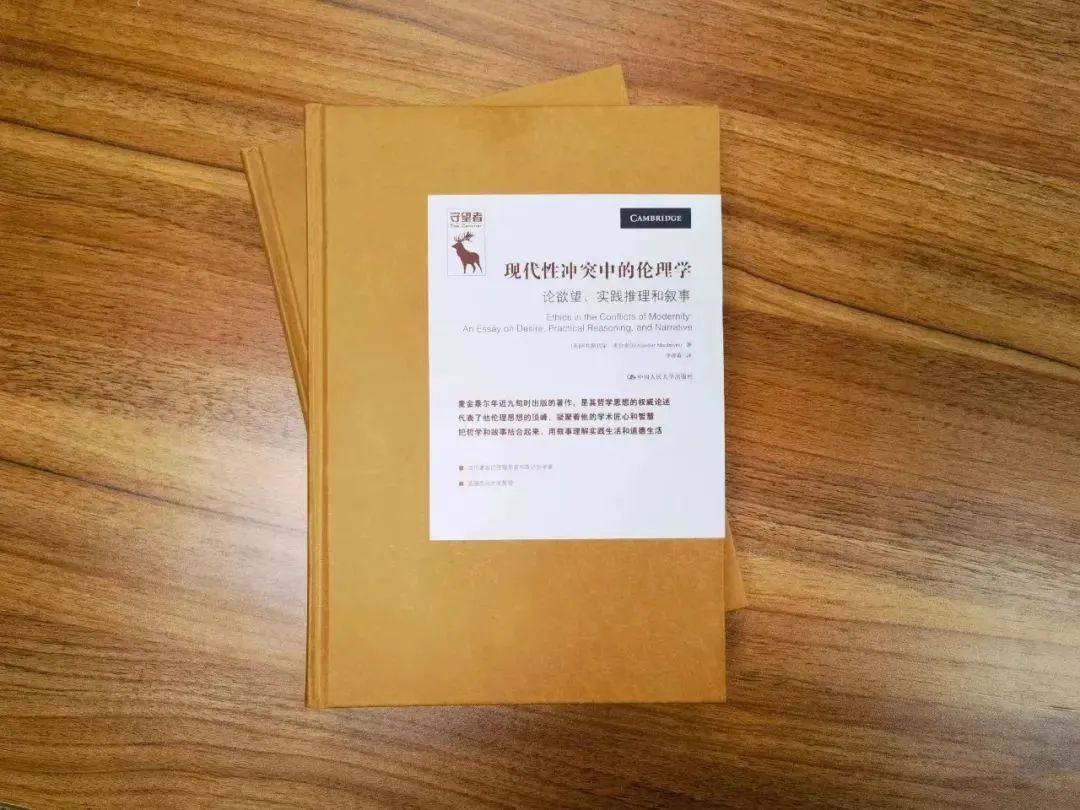
Ethics in the Conflict of Modernity: On Desire, Practical Reasoning and Narration (Watchman)
Author: Alasdair gentile.
Publication date: May 31, 2021
Press: Renmin University of China Press
Original title: "Mai gentile: We must distinguish what is of real value to our life and prosperity"
Read the original text
The Japanese Football League is about to start, and the cypress sun gods will face the Kawasaki striker. The cypress sun gods have performed well in the past games, but their ability at home is relatively weak. At the same time, Kawasaki striker team has performed strongly recently, winning eight consecutive games.

However, the team has recently participated in the AFC Champions League, and continuous away games and one-week doubles may have a certain physical impact on the players. Therefore, there is a certain gap between the strength and current situation of the cypress sun god team and the Kawasaki striker team, but the Kawasaki striker team is facing some challenges. Personally, I think Kawasaki Strikers are more likely to win.

The other game is Adelaide United against Melbourne City. Adelaide United has performed very well recently, ranking third last season and beating its opponent 3-0 in the first round of this season. Their offensive state is stable, and they have scored 6 goals in the last three games.

However, some players of Adelaide United are unable to play, which may have a certain impact on the strength of the team. Melbourne City had some ups and downs last season, but finally won the championship. They brought in some powerful players in the offseason and scored five goals in the last three games.
However, Melbourne City didn’t start the season well, losing 1-2 in the first game. At the same time, they also face the problem that some players can’t play. On the whole, the strength of Adelaide United and Melbourne City team should not be underestimated.
Adelaide United is in a stable state, but it should be noted that they lack some important players. Melbourne City team showed great strength last season, but the start of this season was not smooth. Considering these factors, I personally think Melbourne City is more likely to win.
In these two games, we can see the contest between two strong teams. Whatever the outcome, these games will bring us a wonderful football feast. What do you think of these two games? Which team do you think is more likely to win? Please share your thoughts with us in the comments.
The material of this article comes from the internet. If it is inconsistent with the actual situation or there is infringement, please contact and delete it.
Practical education is an important way to cultivate talents. Postgraduate training units around the country have actively explored and worked hard to develop, and combined with the characteristics of disciplines, majors and regions, they have formed a number of brand projects of practical education, and trained a number of outstanding talents who can be of great use and shoulder heavy responsibilities.
2023年12月12日,由教育部学位与研究生教育发展中心指导,《中国研究生》编辑部、全国高校研究生党建和思想政治工作联盟、洱海流域农业绿色发展研究院联合主办,中国农业大学、云南农业大学支持,以“在学习与实践中成长”为主题的“研究生成长与发展研讨会(2023)”在云南大理洱海流域农业绿色发展研究院召开。
会上,中国人民大学、中国农业大学、复旦大学上海医学院、华中师范大学、湖南师范大学、西南交通大学等校作主题发言。《中国研究生》特刊出相关文章,以利实践育人工作经验的交流与借鉴。
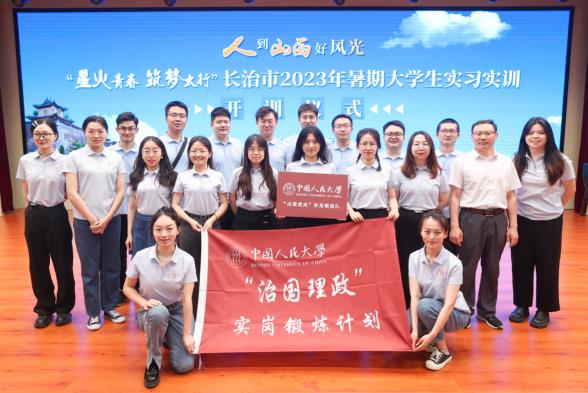
(中国人民大学“治国理政”计划二期研究生在山西长治实岗锻炼)
2022年4月25日,习近平总书记在中国人民大学考察调研时强调,要坚持扎根中国大地办教育。中国人民大学牢记嘱托,坚定不移地走好建设中国特色、世界一流大学的新路,着力构建实践育人体系,积极引导广大青年全面深入贯彻习近平总书记“用脚步丈量祖国大地,用眼睛发现中国精神,用耳朵倾听人民呼声,用内心感应时代脉搏”的殷切嘱托,在行走中国大地的生动实践中深刻体悟中国式现代化的伟大成就,努力成长为德智体美劳全面发展的社会主义建设者和接班人。
China Renmin University’s "Governing the Country and Politics" on-the-job training program (hereinafter referred to as the "Governing the Country and Politics" program) aims at cultivating "governing the country and politics" talents, combines students’ ability training with internship and employment, and combines serving students’ growth with attracting talents and talents from local areas, and strives to build an interactive platform for two-way understanding and two-way selection between students and central state organs, local party and government organs, central enterprises and local enterprises and institutions, so as to effectively build a real link between students and society. Guide students to understand the working mode and specific requirements of party and government organs, enterprises and institutions, consciously combine their personal ideals with the needs of the country, adhere to the concept of "integrating knowledge with practice", temper the political character of "taking responsibility for others", exercise the power of governing the country, and strive to grow into a new generation worthy of the heavy responsibility of national rejuvenation.
Since its inception in 2022, the project has been carried out in two phases, and students have been organized to go to Ningde, Fujian, Zhengding, Hebei, Minning, Ningxia, Lankao, Henan, Jinxian, Jiangxi and other places for 6-8 weeks of on-the-job training, and 176 graduate students have been trained.
First, carry out the plan of "governing the country" under the guidance of thought.
(A) adhere to the "education for the party, education for the country" initial intention.
Carry out the correct political direction and value orientation throughout the whole process of postgraduate backbone education and management, persist in inheriting the red genes, continue the red veins, pay attention to improving political judgment, political understanding and political execution, and concentrate on cultivating talents for the party and the country. First, strengthen political orientation in the registration and selection process. Pay attention to comprehensive quality, make overall consideration of the political consciousness, scientific research progress, comprehensive ability and employment willingness of graduate students, and give priority to students with rich social work experience and outstanding student leadership who are willing to work in grassroots party and government departments after graduation. The second is to adhere to the principle of "matching people with posts" in the post arrangement. Considering the students’ professional background, research direction, career planning and the situation of the post-setting area, we should fully communicate with the responsible units related to on-the-job training to determine the job position, clarify the job responsibilities, formulate the training plan, and establish a two-way work assessment system between the on-the-job unit and the project team to ensure the training quality. Third, pay attention to the feedback of project effect in the final evaluation. Improve the evaluation system and carry out the evaluation of the results of the project, including the appraisal opinions of the on-the-job training units, the self-evaluation questionnaire of project members, the publication of on-the-job training results, etc. Pay attention to the comparison before and after, test the students’ indicators before the project starts, compare the scores before and after the project based on the evaluation indicators, observe the changes of students’ comprehensive quality, especially their political literacy, cultivate the ability of graduate backbone to see things politically, and comprehensively improve their political literacy.
(B) adhere to the "meet the needs of the development of the cause of the party and the state" orientation.
Focusing on the needs of the development of the cause of the party and the country, we will establish a full-chain talent training mechanism of "learning, research, refining and understanding", which integrates course training, discussion and exchange, practical training and experience summary. The first is "learning", carrying out course training and strengthening knowledge reserve and work cognition. Invite experts, scholars and grassroots alumni inside and outside the school to share their experiences around the topics of clean politics, official document writing and official etiquette, so as to help students enrich the theoretical knowledge of social governance, enhance their understanding of China’s administrative system and national conditions, and enhance their public service capabilities. The second is "research", organizing discussion and exchange, and gathering experience and wisdom. Organize students to visit Jinxian, Jiangxi, Changzhi, Shanxi and the grass-roots public departments in Beijing, organize seminars regularly in groups, sum up learning experience, exchange learning experiences and carry out scenario simulation. The third is "refining", carrying out on-the-job exercise and practicing excellent skills. Students go to local governments, enterprises and institutions at the grass-roots level for practical training, accept the grass-roots experience of "real knife and real gun", observe, experience and analyze the operation mechanism and management mode of party and government departments with their own eyes, accumulate vivid experience and temper their excellent skills. The fourth is to "realize", sum up experience and improve the effect of educating people. A research group is set up by individuals or teams to encourage students to carry out special research and form research reports based on their actual work experience. The project team is connected with the National Development Institute and the First Academy to promote students’ participation in the research work of school think tanks.
(3) Adhere to the goal of "cultivating a large number of high-quality talents with both ability and political integrity"
Adhere to moral education, implement the whole process of training and guidance, and strive to cultivate new people of the times who are responsible for national rejuvenation. At the beginning of the project, the old students served as counselors for the new students, playing the role of "mentoring", guiding the students to be familiar with the project, giving full play to the autonomy of the students, and realizing self-management and self-education. During the practice period, the on-the-job unit designated a special person as a grass-roots tutor to be responsible for the training and assessment, and the school organized colleges to go to local places for mid-term visits in batches to communicate with local organizations and receiving units to fully understand and guide the students’ work. After the exercise, summarize excellent reports and training cases, do a good job in publicity and summary, evaluation and commendation, and do a good job in tracking training and service guidance; Attach importance to the cooperation between schools and places, build a talent training base together, maintain the continuity and long-term nature of the project, and enhance the comprehensive influence of the project.
Two, with the effectiveness of the project, service personnel training and local economic development.
Since the implementation of the "governing the country" plan, it has achieved remarkable results in practical education and played a certain role in promoting the high-quality development of local economy.
(A) to guide students to strengthen their youthful ideals in grassroots experience.
The first is to truly enter the grassroots. Students have experienced the transformation from "students at school" to "people’s public servants" in practical work, and have a detailed understanding of how to "manage politics" in specific work such as rural revitalization, industrial development and grassroots party building. The second is to help improve quality. Through interviews, conflict mediation, theoretical preaching, report writing and other ways to gain insight into social conditions and public opinion, grasp the pulse of the times, and achieve an all-round improvement in comprehensive quality. The third is to guide firm ideals. By going deep into the grass roots, practicing deeply, and savoring the "ups and downs" of the grass roots among the masses, the students have accumulated valuable work experience, further strengthened their determination to serve the country and contribute to society, and better defined their future career development plans.
The evaluation results show that all members have gained different degrees of positive feedback during the on-the-job training. Nearly 90% of the students said that the experience of participating in the "governing the country" project is of great help to their career planning, and their personal horizons have been greatly broadened. About 60% of the students said that this experience has further deepened their understanding of the theory they have learned.
(B) to promote the deep integration of theoretical teaching and practical education
Grassroots is the best classroom, and practice is the best teaching material. The program of "Governing the Country and Governing the Government" allows the project students to walk out of the ivory tower and go to the grassroots level, to weather the storm, see the world and strengthen their bones and muscles in the "melting pot" on the front line, and to truly understand the national conditions, social conditions and people’s feelings in the "social classroom". In the fields of rural revitalization, in the front-line posts of party and government services, the project students sink into the front line in the actual post exercise, practice, stand with the people and work together. Take root down, find real problems based on grassroots reality, seek upward, and give full play to professional advantages to solve practical problems. Students turn the facts at the grass-roots level into first-hand materials for academic research, and write the research results as answers to the times to improve people’s livelihood. They really study problems and real problems in grass-roots practice, lay a solid foundation of knowledge, practice excellent skills and temper moral cultivation in discovering, studying and solving problems, which effectively promotes the deep integration of theoretical teaching and practical education.
(三)挖掘实践成果助力地方经济高质量发展
习近平总书记寄语广大青年要“同人民一道拼搏、同祖国一道前进,服务人民、奉献祖国”。学员在基层岗位上接受基层实践导师的指导,主动接触地方发展战略,关注地方发展难题,利用自身专业优势,积极为地方发展建言献策,助力地方经济高质量发展,让青春在奋斗与奉献中绽放绚丽光彩。“治国理政”计划项目成果丰硕,其形式包括工作报告、工作手记、课题研究、数据收集、宣传报告、调研走访等,内容涵盖信用评级、普惠金融、共同富裕样板村、文明城市建设、文化产业推广、纪检督察、综合治理、案件审理、党建、宣传等工作。多个项目成果被地方政府采纳,多地发来感谢信肯定同学们的工作与付出。
项目学员工作期间的署名报道刊登在学习强国、新华网等主流媒体,工作事迹及座谈会发言等被《光明日报》《新京报》《福建日报》等媒体宣传报道。
三、以坚定步伐,优化“治国理政”计划育人模式
未来,中国人民大学将持续优化“治国理政”计划育人模式,推动实践育人体系走深走实。
First, improve the collaborative linkage mechanism between schools and localities. Coordinate the mobilization of social resources, optimize the multi-level and multi-form cooperation mode, further build a comprehensive practice base to meet the needs of students’ "national conditions practice, academic practice, ideological and political practice and employment practice", build a bridge for students to approach and serve the grassroots, and promote resource sharing, talent co-education, mutual promotion and common improvement between schools and places.
Second, strengthen the promotion mechanism of practical achievements. Strengthen the propaganda of typical tree selection for outstanding students, and tell the story of "governing the country" program students exercising at the grassroots level. We will promote the exchange and mutual learning of practical experience among colleges and universities, focus on refining the experience and practices of the "governing the country" plan, and strive to build a leading benchmark practice brand that is dynamic, long-term, accessible and can be promoted for colleges and universities across the country.
Third, continue to improve the practical education system. Adhere to the "five educations", comprehensively build a training system with the characteristics of the National People’s Congress, which is suitable for improving students’ social research ability, gather the majestic power of "educating people for the party and educating people for the country", take the plan of "governing the country and governing the country" as an important starting point to implement practical education, promote the organic integration of the first classroom and the second classroom, further guide students to combine theory with practice in practical training, practice excellent skills in grassroots experience, temper political character, and strive to cultivate people who are worthy of the heavy responsibility of national rejuvenation.
(The original text was published in the November 2023 issue of China Graduate School. )
Original link:[China Graduate] China Renmin University: Learning to "govern the country" in practical training.
On December 11th, according to Mi Gu Sports, the ITTF announced that the men’s singles World Cup and the women’s singles World Cup will return at the same time, and the competition will be held in April, 2024 at the Galaxy Variety Hall in Macau, China.
Liu Guoliang, Chairman of the Board of Directors of WTT World Table Tennis Federation, First Vice Chairman of ITTF and Chairman of China Table Tennis Association, said: "In April next year, the men’s and women’s singles World Cup will return to Macau, and table tennis fans from all over the world are welcome to gather in Macau again."
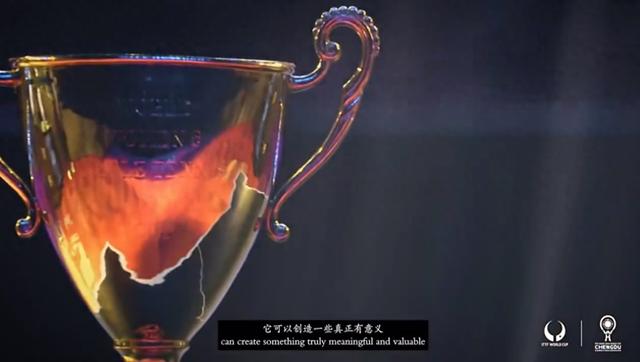

[Source: Mi Gu Sports]
Disclaimer: The copyright of this article belongs to the original author. If there is any source error or infringement of your legitimate rights and interests, you can contact us through email, and we will deal with it in time. E-mail address: jpbl@jp.jiupainews.com
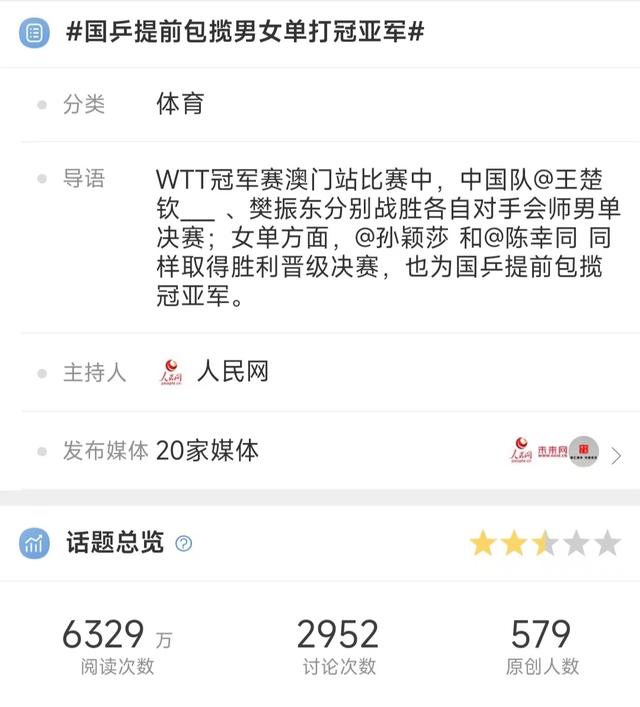
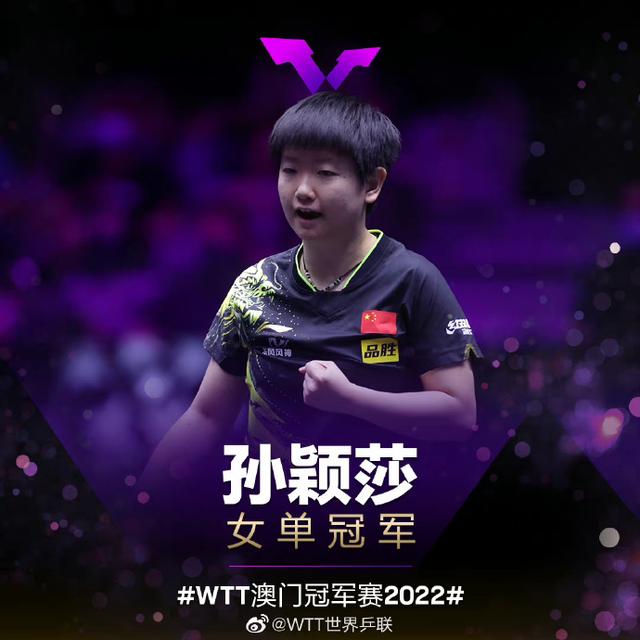
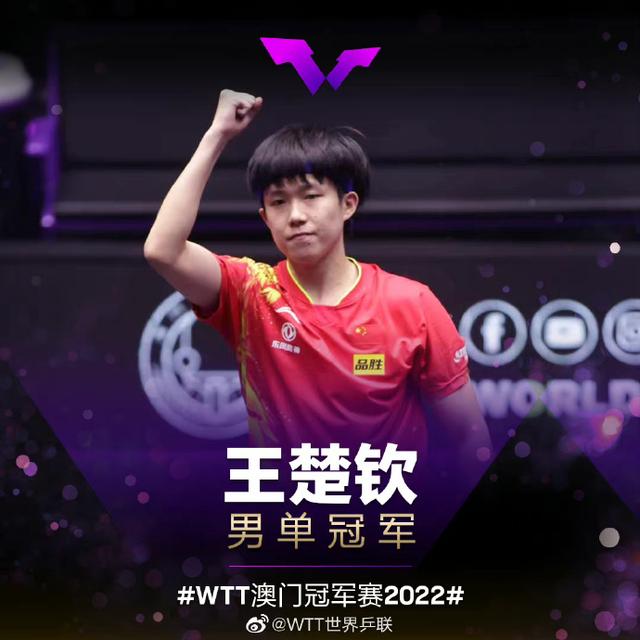
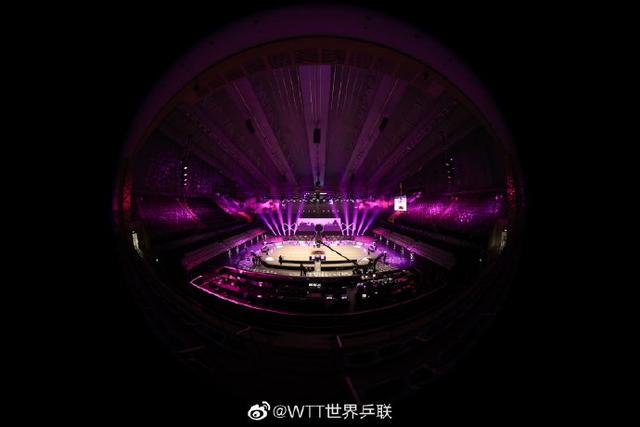
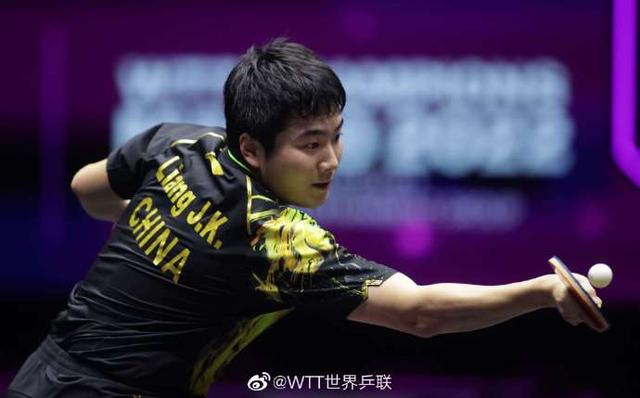
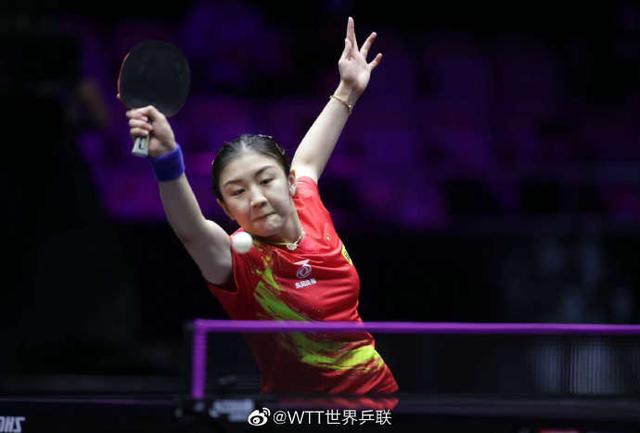
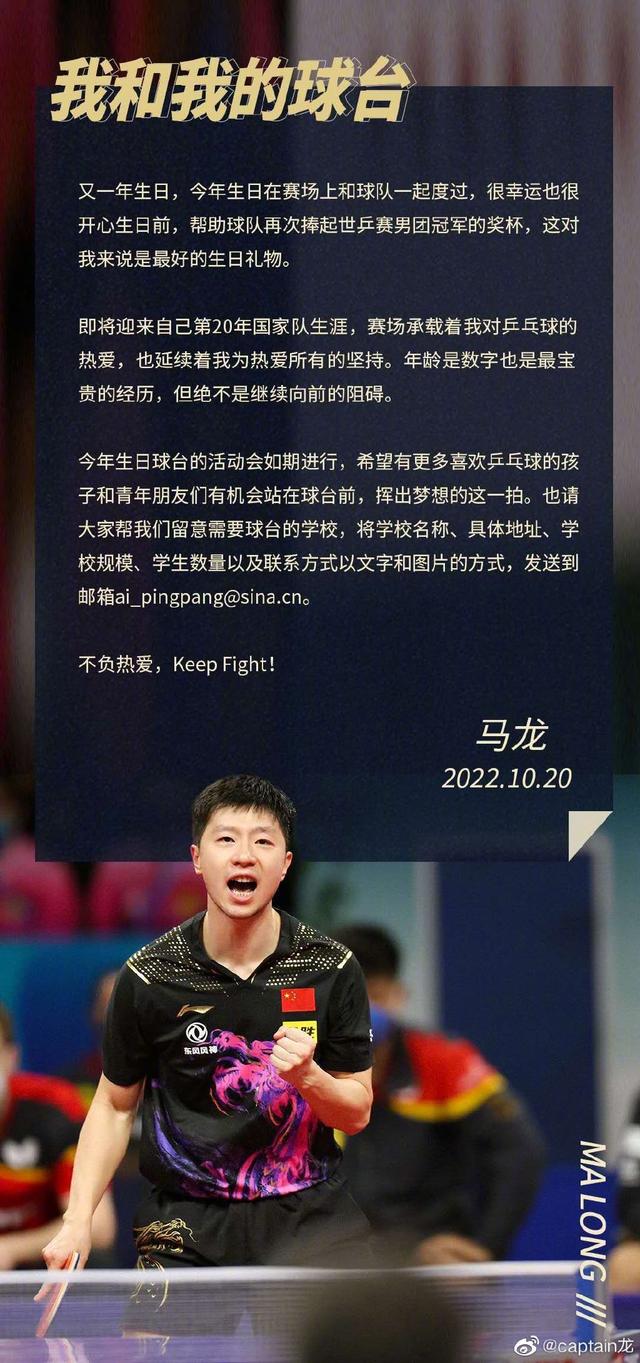
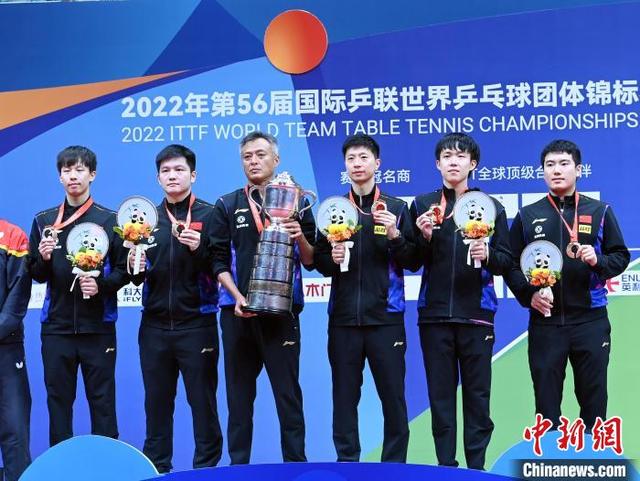








This story is based on a real case in Japan.
The 64-year-old Dalin Sanzuo was forced to sleep on the street for social reasons. On the morning of November 16th, she was attacked and killed by Yoshida Kazuo while taking a nap at the bus station. Yoshida and Dalin did not intersect, just because of the absurd reason that "she sat at the bus stop and blocked my eyes", an innocent woman was killed.
The social problems behind the incident came to the fore in an instant. The dilemma of "female poverty", which has accumulated in the hearts of the public for a long time, has been put in broad daylight. Japan’s "women don’t have to earn money to support themselves, seemingly caring, but actually depriving women of the opportunity to survive." Although there is no such phenomenon in China, it is difficult for women to find a job from the age of 28 to 35. Whether married or unmarried, with or without children.
Companies always worry that women will delay their work for the sake of their families, and eventually they would rather choose a man with an average resume than take the risk of choosing a woman with excellent work. In order to make a living, women can only work hard or lower their job search standards in employment. The decrease of marriage rate and fertility rate also reflects the rise of women’s thoughts.
Protecting women’s rights and interests so that women can survive in an equal competitive environment is the best social security.
# Headline Creation Challenge #